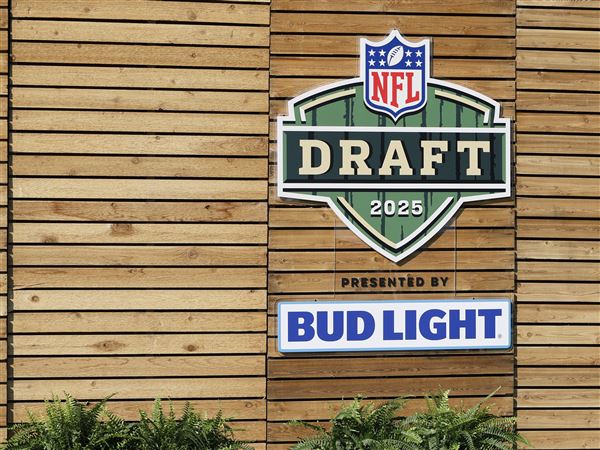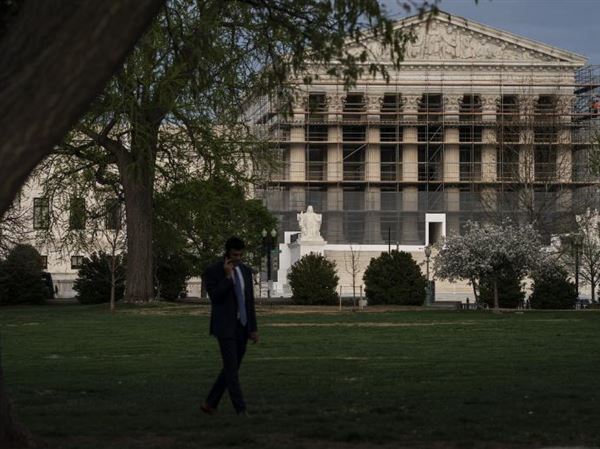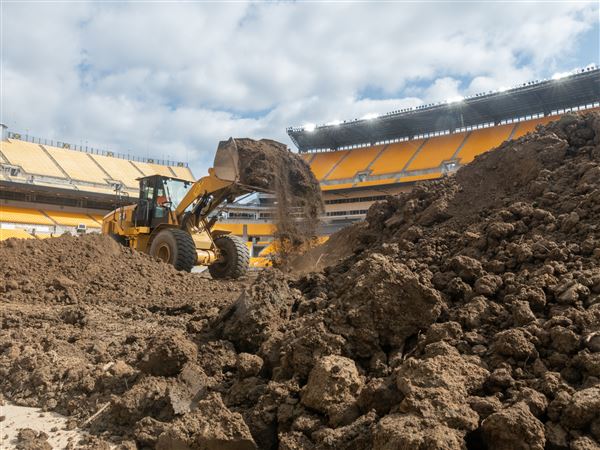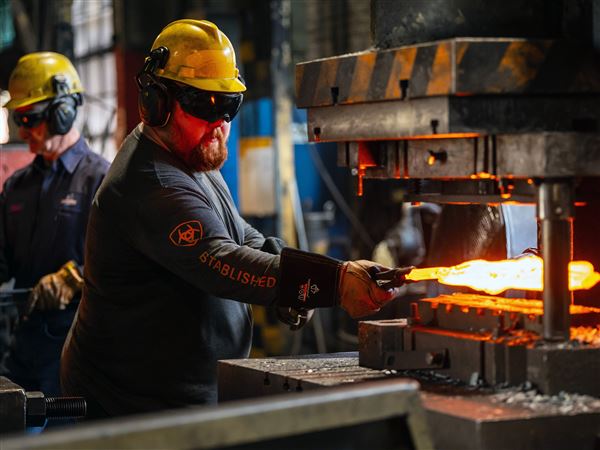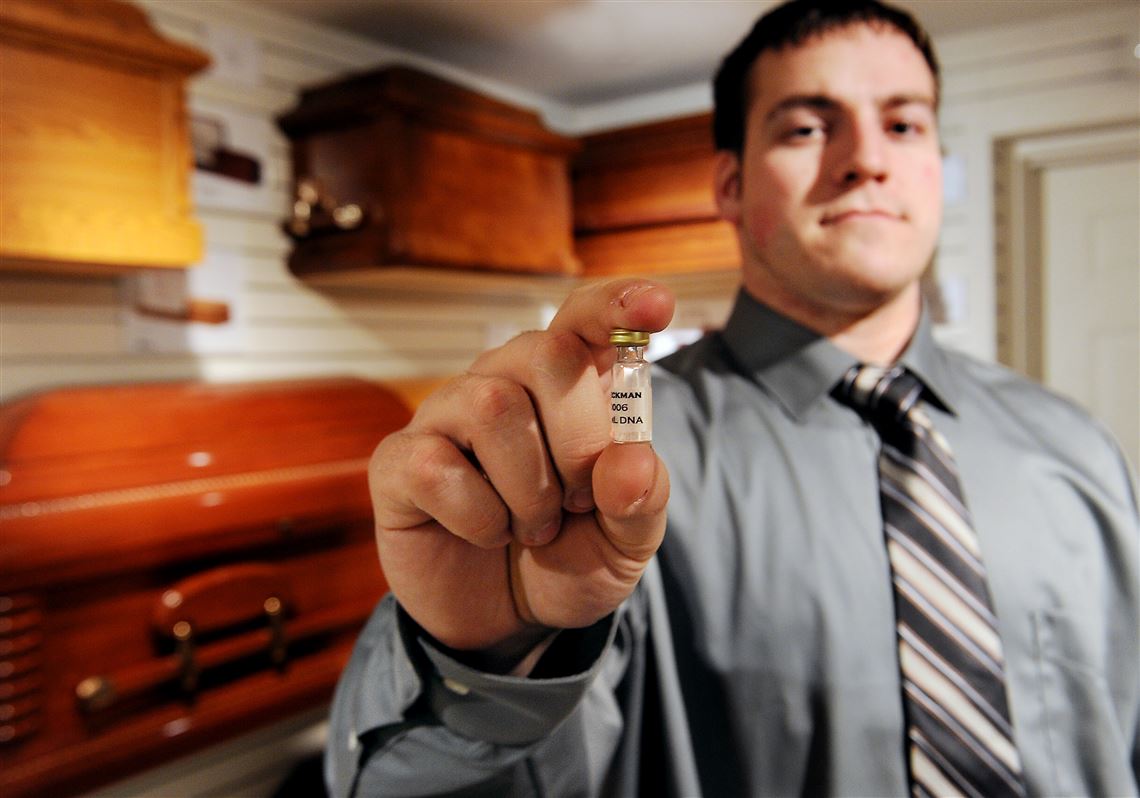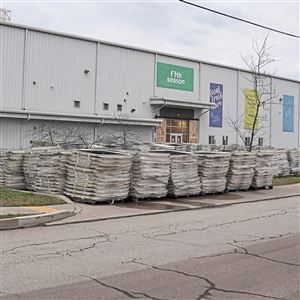When his father passed away in October, Andrew Weckman received an intriguing offer from the funeral director handling the arrangements.
The owner of Perman Funeral Home in Shaler suggested that Mr. Weckman harvest and store his deceased father’s DNA. That way the sample could be analyzed in future years as the mysteries of human genes continue to be uncovered.
“My father was adopted,” said Mr. Weckman, 26. “So we didn’t know too much about his background, medical history or hereditary information. My wife and I would like to know for our own benefit, and our unborn children, if there are any kind of hereditary diseases or anything we should be aware of.”
For an industry that has seen dramatic changes in the spending patterns and preferences of its clients in recent years, DNA banking offers both a potential new stream of revenue for funeral homes and another service they can offer families to cope with their loss.
Perman Funeral Home is the first funeral home in Pennsylvania to offer DNA banking through a partnership with the Ontario, Canada, company, DNA Memorial, which provides collection services and products. DNA Memorial has a patent pending on the process of attaching DNA to inert material to prevent it from deteriorating over time.
Brad Marsh, a manager at DNA Memorial, said the technology has been around for seven or eight years. It was developed by the company’s founder, Ryan Lehto, while he was a master’s student at Lakehead University in Thunderbay, Ontario, and was doing research on the retrieval of ancient DNA from mummies and ancient life forms.
The company only began making traction in the funeral industry in the past year when Jeff Harbeson, a former funeral director, became president of DNA Memorial and began using his connections with funeral directors to market the product. So far, about 30 funeral homes in and around southern Ontario offer the DNA service. In the U.S., there are now about 20 funeral homes that provide DNA banking through the company.
“We believe this will catch on because we are living in the age of genetics, and DNA is the ultimate in family history for medicine,” Mr. Marsh said. “DNA is being used for many medical and genealogical purposes and this will only increase as genetics expands.”
DNA is a human genetic record that provides medical and genealogical information that has proven invaluable for a myriad of reasons. It can be used to diagnose medical conditions, calculate inherited risks for children, determine medical tests and medical dosage, and determine disease risk and preventative measures.
Likewise, it can play an important role in learning more about family ancestors, examining biological and geographical relationships between two individuals, finding relatives or adoptees, and learning from which relative certain traits were inherited.
The advent of genetic testing has revolutionized the way people search their ancestry.
With DNA samples, families can trace their ancestors back to the Mayflower and beyond. And it can also be used to uncover things such as infidelity. Children of sperm donors have used DNA samples along with other research to find siblings they never knew they had. Most people are familiar with the use of DNA in solving real and TV crimes, including rape and homicides.
Mr. Weckman, an Etna resident, said his father, Joseph Weckman, passed away at age 56 in October from pneumonia and sepsis, but his whole traumatic medical condition was brought on by an aneurysm.
Andrew Weckman and his wife have been married for a year and a half, and have no children. But they are preparing for the potential need to know more about his father’s background and how it could affect their offspring.
“I’m into science, so I like the idea of trying to figure out more and seeing what kind of results come from lab work and stuff like that,” he said. “I’m not sure what’s available, and probably as time goes on more things will become available with science advancing.”
DNA Memorial depends on funeral directors to collect the sample in two ways: Either by mouth swap or a hair follicle.
Michelle Weckman, 24, said she and her husband felt that this was a less invasive way to find answers about his father’s family background than trying to find lost relatives and potentially digging up old wounds.
“We know where the records are,” she said. “But I just feel terrible about finding people who for whatever reasons just didn’t want to be a part of his father’s life.”
Customers are charged $295 to have DNA Memorial preserve the sample and then give it back to the family in a tiny clear capsule processed to look like salt. For $600, the company will store the DNA sample in its own vault. The funeral homes receive a commission on the sales.
“I’m looking at this more from a service standpoint than a revenue standpoint,” said Frank Perman, owner of Perman Funeral Home. “I see this as something I can offer families that enhances what I do for them. Offering this service can help them think about things other than the death of a relative.”
Mr. Perman noted that the funeral service industry is going through a transition where more people are going with cremations rather than burials, because it costs less. Visitations for friends are shorter. Some families have a cremation done and then hold a service at a later time. Some are even forgoing any visitation or funeral service at all.
“I’m having more families choose not to even put a notice in the newspaper,” Mr. Perman said. “They are not spending the money.”
The decision to bank DNA often involves a combination of sentiment and science, Mr. Perman said. That is why he also recommends having a sample embedded into custom jewelry and crystal remembrance pieces available through the service.
While many families store the ashes of their loved ones in urns and lockets, having the deceased’s DNA can be a better way of preserving a connection to a loved one, he said.
“The jewelry actually serves two purposes,” Mr. Perman said. “It can keep someone close to your heart if you wear a necklace. But also if needed, the DNA also is in there. It can be opened and tested, unlike cremated remains which can’t.
“Right now, the market for DNA banking is for dead people,” he said. “But you don’t have to be dead to do it.”
First Published: January 18, 2015, 5:00 a.m.
